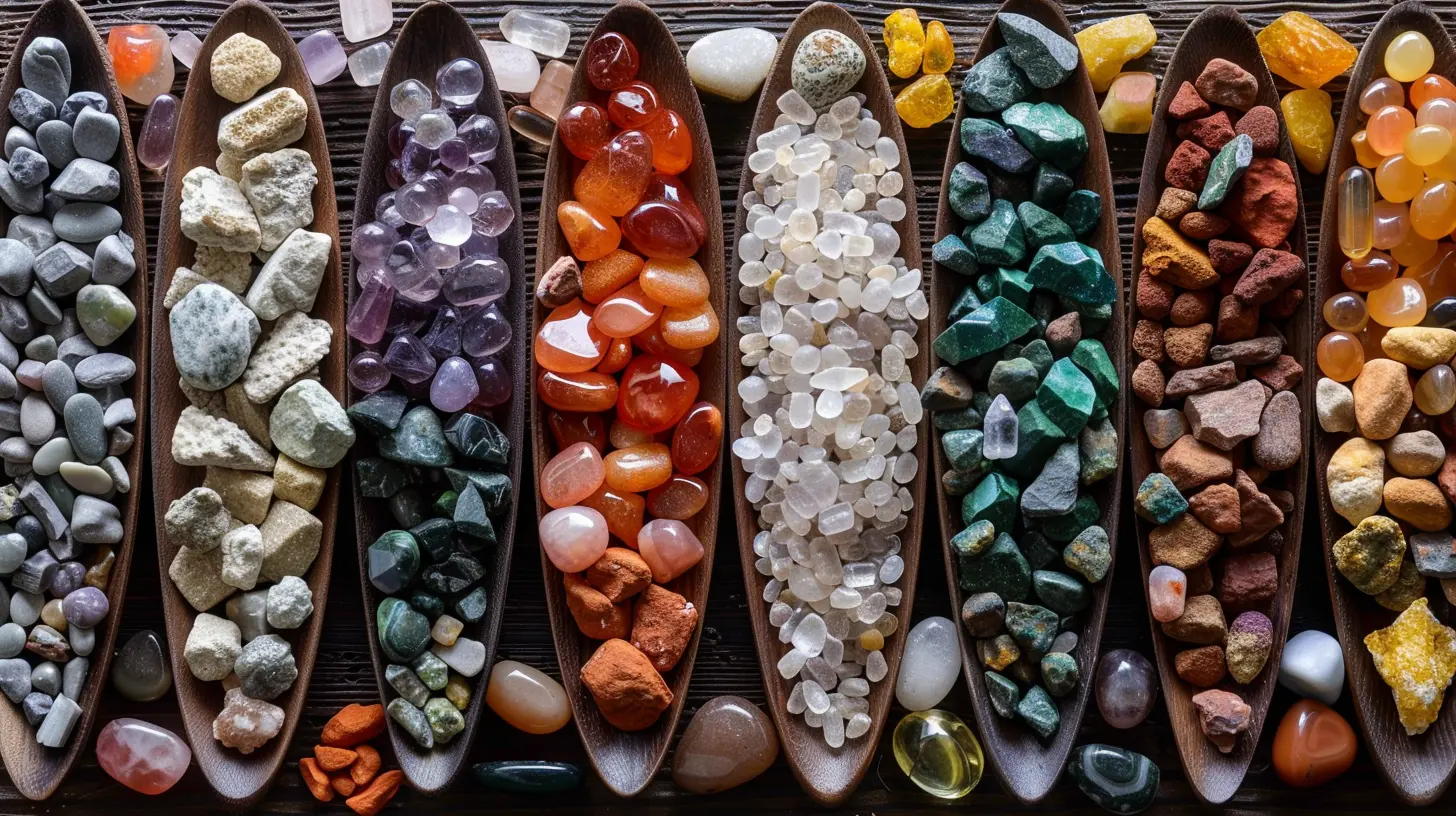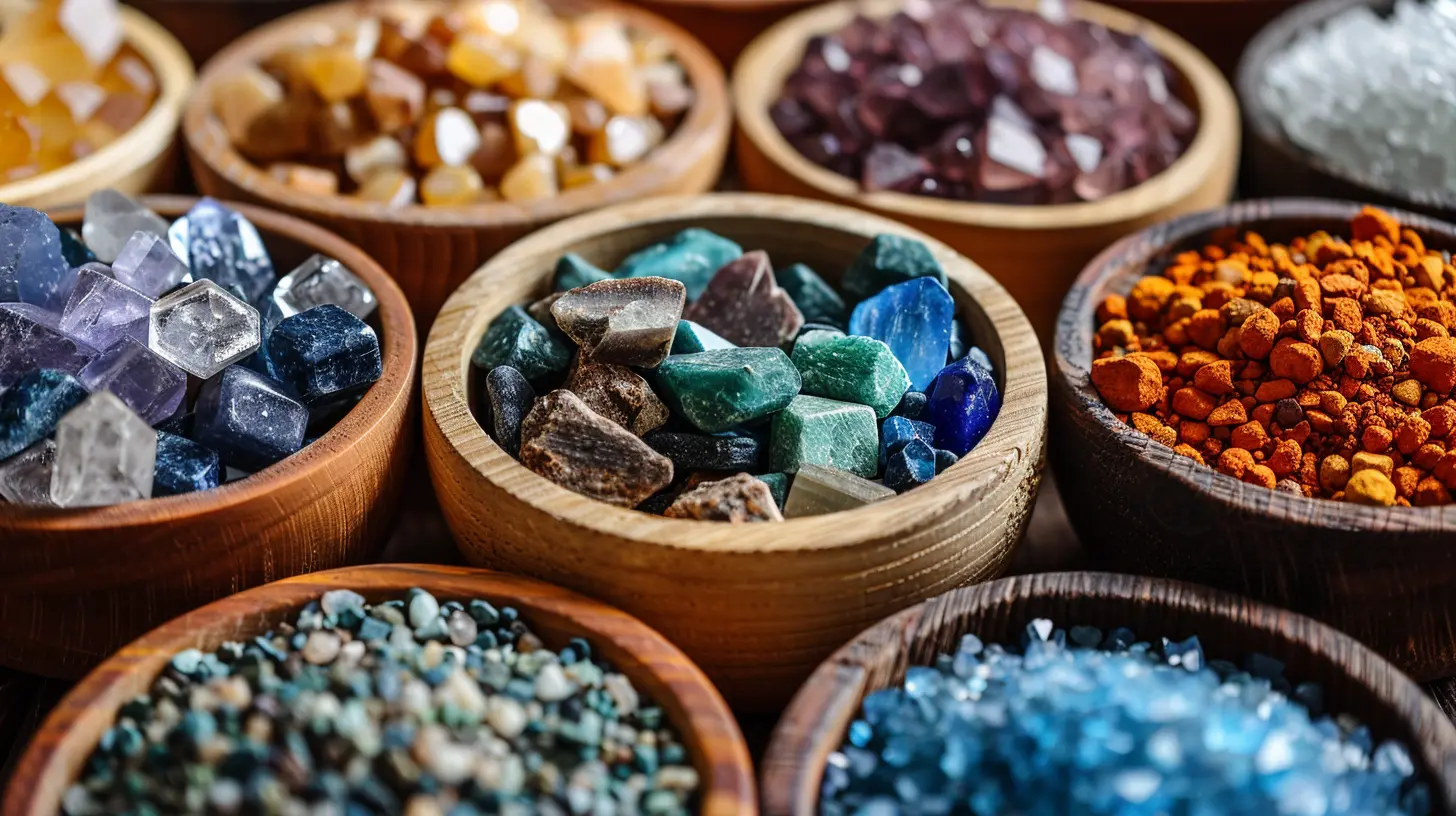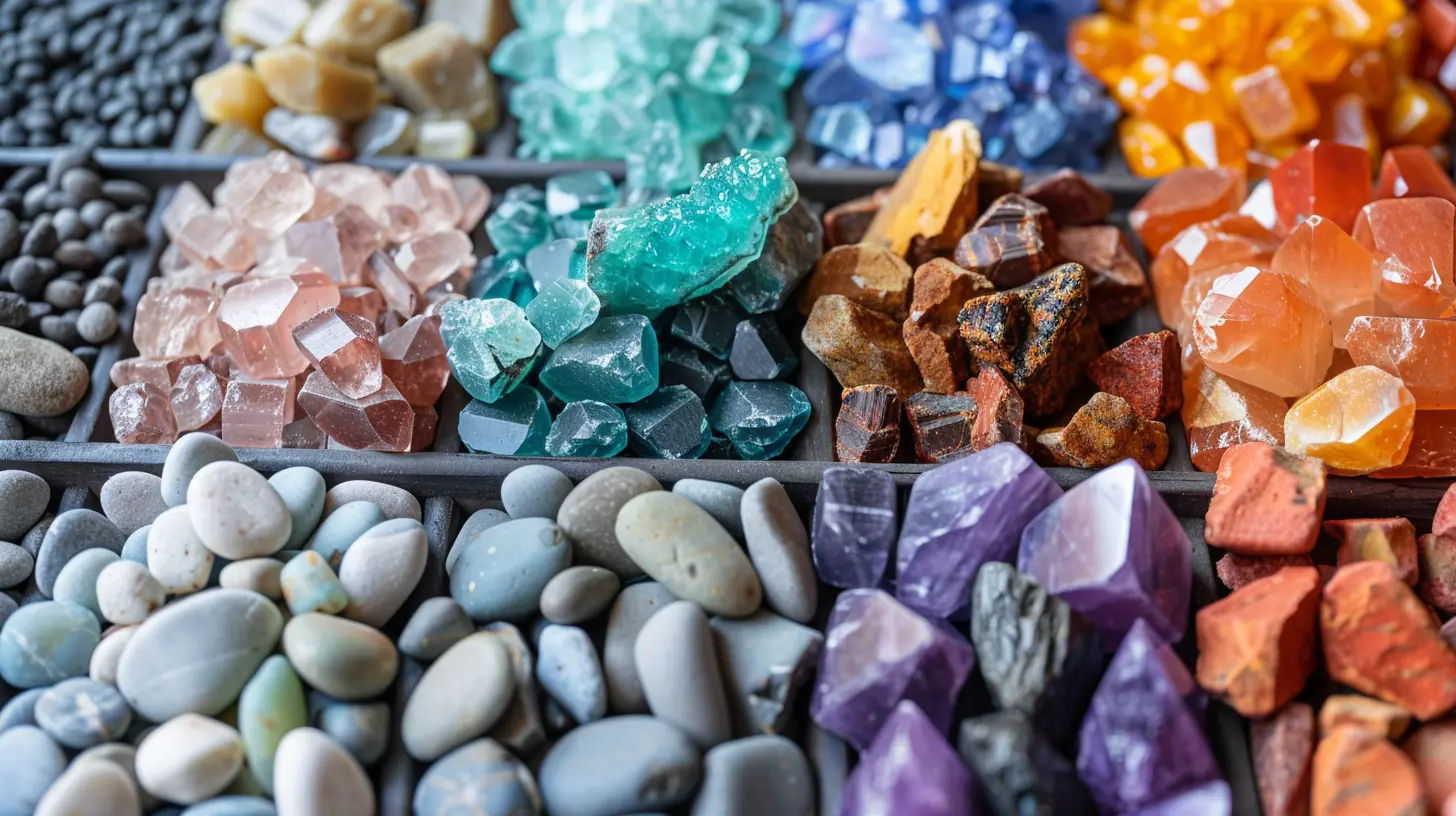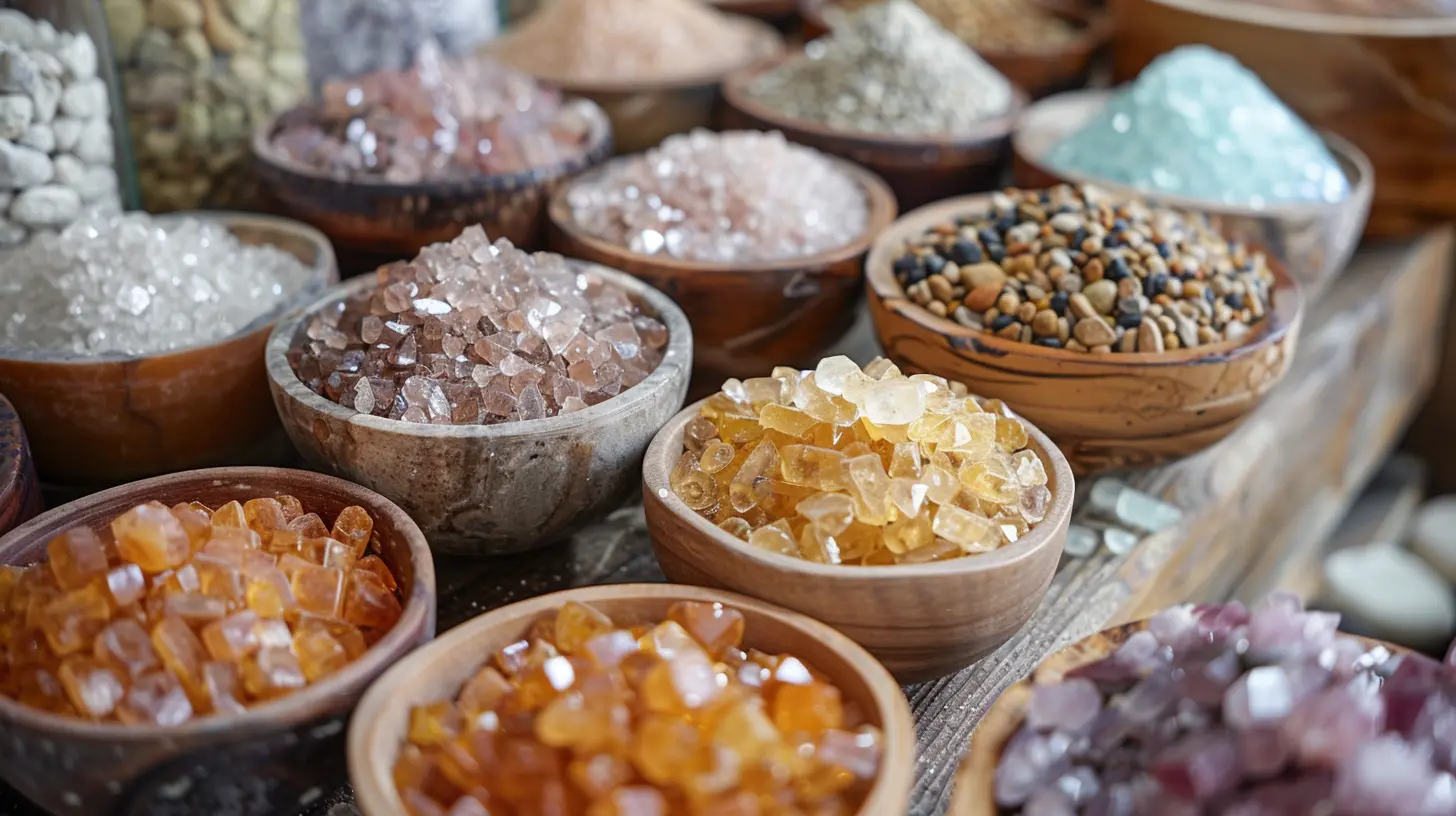How Minerals Aid in Healthy Muscle Recovery
21 July 2025
Whether you're a weekend warrior, a seasoned athlete, or just someone hitting the gym to stay in shape, you’ve probably felt those dreaded sore muscles after an intense workout. That stiffness and ache? It's a sign your muscles are in recovery mode. But did you know that minerals play a huge role in helping your muscles bounce back?
Let’s dive into how minerals aid in healthy muscle recovery and why you might want to pay more attention to what’s on your plate—or in your supplement drawer.
Why Muscle Recovery Matters (And It's Not Just For Athletes)
Before we even talk minerals, let’s get one thing straight: muscle recovery isn’t just about reducing soreness.When you exercise—especially during strength training or high-intensity workouts—you cause tiny tears in your muscle fibers. These microtears are actually good! They’re the reason your muscles grow stronger. But recovery is where the real magic happens. It’s when your body repairs those tears, rebuilds the muscle tissue, and makes it more resilient.
Poor recovery doesn’t just mean a few days of soreness. It can lead to injuries, burnout, and a plateau in your fitness goals. Recovery is essential—and minerals? They’re the often-overlooked MVPs of this process.
What Are Minerals Anyway?
Minerals are inorganic elements your body needs to function. We’re not talking about huge quantities here—just trace amounts. Yet without them, your system would grind to a halt faster than a Netflix stream during a power outage.There are two main categories:
- Macrominerals (like calcium, magnesium, and potassium), which your body needs in larger amounts
- Trace minerals (like zinc, iron, and selenium), required in tiny—but mighty—doses
Each mineral plays a unique role, and together they create a symphony that keeps your muscles—and your entire body—in top shape.
Top Minerals for Muscle Recovery
Let’s get into the good stuff. Here are the key minerals that can make or break your recovery game.1. Magnesium – The Muscle Whisperer
If minerals had personalities, magnesium would be the chill, laid-back friend who helps calm everybody down. It plays a massive role in:- Muscle contraction and relaxation
- Energy production
- Reducing inflammation
- Regulating nerve signals
Magnesium also helps reduce the cramping and twitching that can follow an intense workout. Ever wake up in the middle of the night with a charley horse? A magnesium deficiency could be why.
You're losing magnesium every time you sweat, so it’s crucial to replenish it regularly—especially if you're exercising hard.
Sources: Spinach, almonds, pumpkin seeds, dark chocolate (yes, really), and whole grains
Pro Tip: Magnesium glycinate or citrate supplements are easier on the stomach compared to magnesium oxide.
2. Potassium – The Electrolyte Hero
Potassium works hand-in-hand with sodium to maintain fluid balance, which is critical for muscle function. When your potassium levels drop, you can experience:- Muscle cramps
- Fatigue
- Weakness
Potassium is also key for nerve impulses that control muscle contractions. Without it, your entire motor function can feel out of whack.
If you’re sweating buckets during your workouts or living in a hot climate, potassium loss can sneak up on you.
Sources: Bananas (obvious, but not the only option), sweet potatoes, beans, avocados, and yogurt
Pro Tip: Pair potassium-rich foods with water after a workout to help your muscles rehydrate and recover.
3. Calcium – More Than Bone Deep
We all grew up hearing calcium is good for your bones. But its benefits go way deeper. Calcium is essential for:- Muscle contraction
- Blood clotting
- Nerve communication
During muscle contractions, calcium ions are released to bind with muscle proteins. Without enough calcium? Your muscles can’t contract properly—which means sluggish workouts and slower recovery.
Sources: Dairy products, leafy greens, tofu, soy milk, and fortified cereals
Pro Tip: Vitamin D helps your body absorb calcium, so make sure you’re getting adequate sunlight or consider a D3 supplement.
4. Zinc – The Repair Technician
Imagine zinc as your body’s repair guy. It’s involved in:- Wound healing
- Immune function
- Enzyme production
- Muscle tissue regeneration
Zinc also impacts testosterone levels, which can influence muscle growth and recovery, especially in men. If you’re always getting sick after a tough training cycle or injuries take forever to heal, low zinc might be the culprit.
Sources: Red meat, chickpeas, pumpkin seeds, and cashews
Pro Tip: Vegetarians and vegans might need more zinc due to lower bioavailability from plant sources.
5. Iron – The Oxygen Taxi
Muscles need oxygen to repair and grow. That’s where iron steps in. Iron is at the core of hemoglobin, the protein that carries oxygen in your blood. Low iron = less oxygen = slower muscle recovery and fatigue.Common signs of low iron include breathlessness, pale skin, and a constant sense of exhaustion. Women, in particular, are more prone to iron deficiency due to menstruation.
Sources: Red meat, spinach, lentils, and iron-fortified cereals
Pro Tip: Vitamin C helps with iron absorption, so toss some strawberries or citrus into your meal to boost your uptake.
6. Phosphorus – The Energy Charger
Phosphorus doesn’t get much attention, but it’s a sleeper hit in the muscle recovery world. It helps with:- ATP production (your body's main energy currency)
- Bone health
- Muscle contraction and repair
The more energy your cells have, the better they can rebuild muscle tissue after exercise.
Sources: Fish, poultry, nuts, and whole grains
Pro Tip: Avoid over-supplementing phosphorus unless directed by a doctor—too much can mess with calcium levels.
7. Sodium – The Balancing Act
Sodium catches a lot of flak for being linked to high blood pressure. But for active individuals, it's crucial. Sodium:- Balances fluids
- Maintains blood volume
- Aids nerve and muscle function
If you’re sweating heavily, especially during endurance sports, you’re losing sodium. Replenishing it is key to preventing fatigue and cramping.
Sources: Table salt, pickles, broth, and sports drinks (in moderation)
Pro Tip: Don't go overboard with sodium unless you're losing a lot through heavy exercise or heat exposure.
How Mineral Deficiencies Can Wreck Your Recovery
Let’s say you’ve nailed your workouts, you’re sleeping like a baby, and downing protein shakes like a champ—but you’re still not recovering right. Could it be a mineral deficiency?Absolutely.
Mineral imbalances can lead to:
- Chronic muscle cramps
- Joint stiffness
- Weakness and fatigue
- Delayed recovery
- Weakened immune response
And the worst part? These deficiencies are super sneaky. You might not notice until your performance dips or injuries start piling up.
Should You Supplement?
Here’s the million-dollar question: do you need to take mineral supplements?If you’re eating a balanced diet full of fruits, veggies, lean proteins, and whole grains, you might be covered. But athletes, older adults, vegans, and people with certain medical conditions might need extra support.
Things to consider before supplementing:
- Get a blood test: It’s the best way to know where you stand.
- Talk to your doc or a nutritionist: They’ll help you pick a plan that’s just right for you.
- Go easy: More isn’t always better. Over-supplementing can lead to toxicity and other health issues.
Final Thoughts: Minerals Are Muscle Recovery’s Secret Weapon
Here’s the bottom line: protein may get all the glory in the fitness world, but minerals are the unsung heroes quietly doing all the heavy lifting behind the scenes. They balance your fluids, boost your energy, help your muscles contract and relax, and power up the healing process.Ignoring your mineral intake is like trying to fix your car with only half the tools you need. Sure, it might run—but not for long, and not efficiently.
So next time you feel sore, tired, or just off after a workout, ask yourself this: are you giving your muscles the minerals they need to recover?
Spoiler alert: that banana or handful of almonds might be doing way more for your gains than you thought.
all images in this post were generated using AI tools
Category:
MineralsAuthor:

Arthur McKeever
Discussion
rate this article
1 comments
Gabriella Rios
Strong minerals lead to stronger, healthier muscles!
July 25, 2025 at 4:59 PM

Arthur McKeever
Absolutely! Essential minerals like calcium, magnesium, and potassium play a crucial role in muscle function and recovery.


